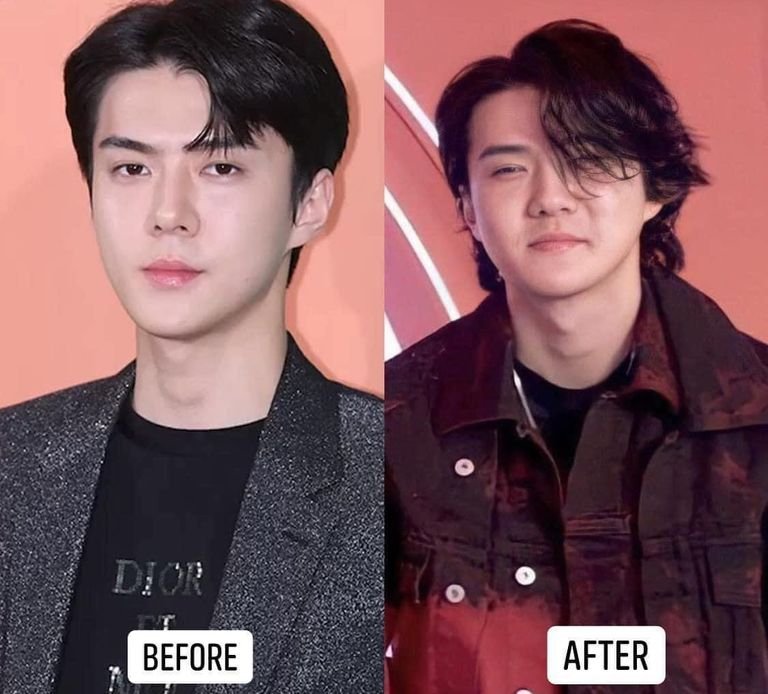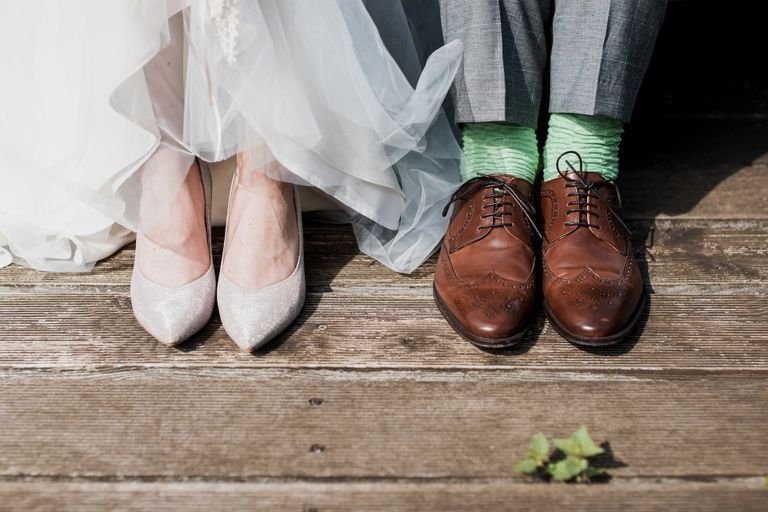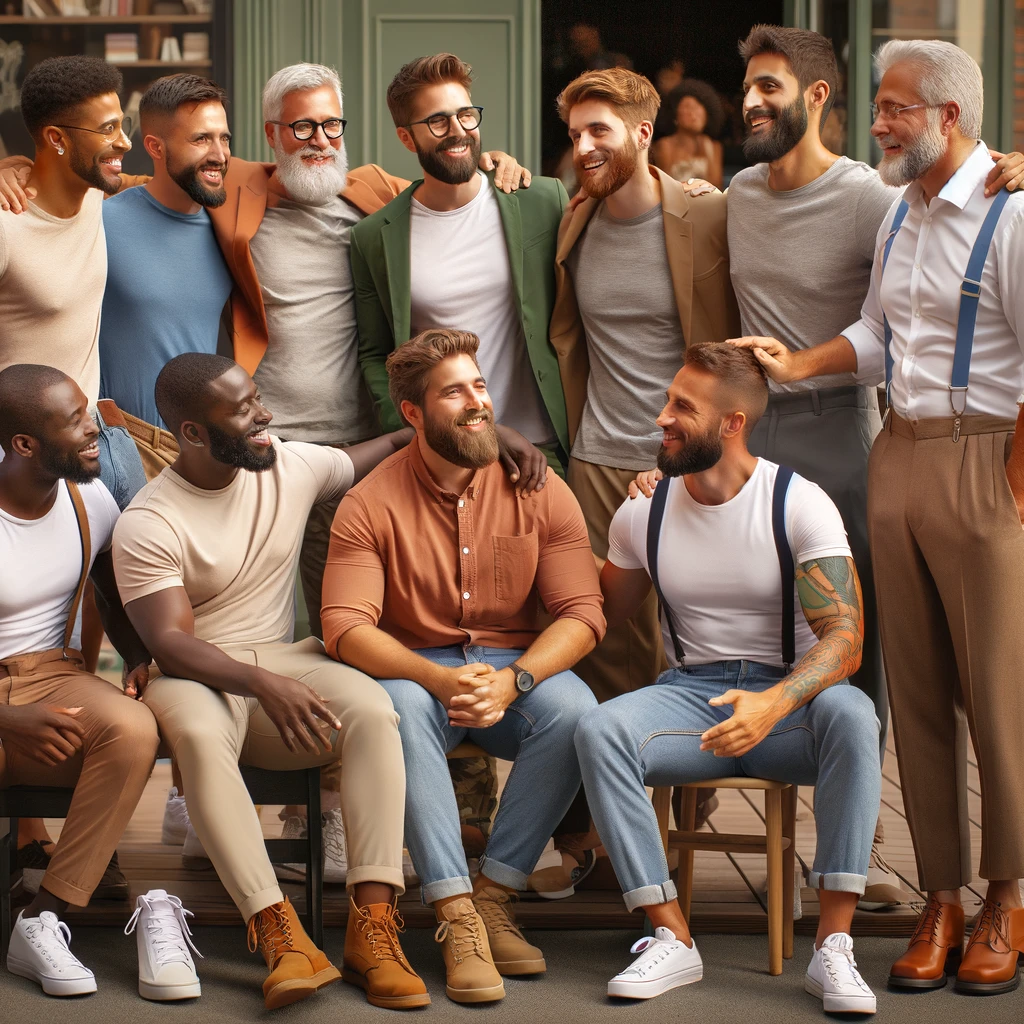Why Men Endure Body Shaming: Unraveling the Silent Struggle
The saying, “A man’s height is measured from his head to the sky,” might warrant reconsideration. Criticizing men’s appearances remains a subject of mockery for many.
Grammy-winning singer Sam Smith has been labeled as overweight and bizarre. K-pop idol Oh Sehun faced backlash for gaining weight. Actor Leonardo DiCaprio has been teased for the aging appearance of middle age. Even Aquaman Jason Momoa fell victim to body-shaming when beach photos surfaced, with the term “Dad bod” referring to the slightly plump physique of fathers. In Vietnam, you are likely familiar with a man being tagged with traits like being chubby, short, bald, having acne, or being dark-skinned.
While body-shaming is often associated with women, it seems that men have been silent victims of body shame in society for many years. Body-shaming can affect anyone.
Speaking Out Against Body Shaming: A Challenging Task
In an Instagram survey gauging the perceptions of men aged 26 to 40 about their bodies, over half (58%) felt negatively about their appearance. Men also harbor concerns about their bodies. If women are typically body-shamed for their weight, men often find it awkward when conversations focus on height.

Even Aquaman is not immune to body-shaming | Source: Daily Research Plot
Other body-related issues that men are often teased about include being too skinny or too fat, baldness, having too little facial hair, body hair, enlarged breasts due to the hormonal disorder Gynecomastia, and insecurities about genital size. These “heartfelt” comments affect men not only in terms of self-esteem but also raise mental health concerns.
Ironically, men seem to have little opportunity to express their body image struggles and experience body shaming. This stems from the notion that boys talk about skills while girls talk about looks. Men’s appearance has been considered trivial in the minds of many. Therefore, men find it difficult to speak out about body shaming because it doesn’t seem like a real issue.

Oh Sehun faces criticism for his appearance as he had to gain weight for a role | Source: HHSB
Furthermore, men are often hesitant to speak up or fight against body shaming because they are taught to know how to overcome it. Men are innately seen as stronger and are expected to suppress their emotions. For instance, many parents prefer their children to have a chubby appearance as it looks cute. However, when the child is teased by friends, the advice is often to be stronger, not to cry, without realizing that the child still has perceptions of beauty and insecurities.
Beyond Surface Level: The Deep-Seated Impact on Men’s Mental Health
Challenging Traditional Masculinity
Men find it challenging to address body shaming due to societal expectations that they shouldn’t care too much about their appearance. This belief creates a barrier, making them reluctant to express concerns about appearance-related pressure. Challenging traditional notions of masculinity is a crucial step in addressing male body image insecurities. Men should feel free to express their concerns and vulnerabilities without fear of judgment.

Male underwear advertising models still lack diversity | Source: British Vogue
Promoting Mental Health Support for Men
Creating accessible mental health support for men is crucial. Encouraging them to seek professional help, fostering an environment where vulnerability is accepted, and emphasizing the importance of mental well-being contribute to creating a healthier mindset about body image.
Encouraging Open Conversations
Promoting open conversations about body image for men is essential. Society should encourage men to share their experiences, struggles, and insecurities related to appearance. This requires fostering a culture that values and respects diverse forms of
Who Is Mocking the Appearance of Men?
Media’s Portrayal of the Ideal Body
Campaigns by fashion and beauty brands have attempted to diversify the portrayal of women’s images. However, it seems that they have exhausted their efforts in doing so for men’s images. Studies have revealed that most images in popular magazines, men’s underwear advertisements, dating websites, and adult content showcase pictures of young, muscular men. Instagram, in particular, is flooded with seemingly flawless and surreal images of bare male bodies.
Additionally, marketing tactics and product advertisements in the beauty industry for men are exacerbating the beauty-ugliness dichotomy. From fat suction ads to hair implants, all are delving deep into body image insecurities, making men constantly feel uneasy about their bodies.
Harmful Notions of Masculinity
Toxic masculinity creates a strict and imposing view of a man. Criteria for what is considered manly and masculine have deeply ingrained themselves in the subconscious of many. Statements like “Being this fat will lead to future impotence,” “A man without a beard will never be attractive to girls,” or “How can he manage household chores when he is so thin?” reflect outdated notions of masculinity.

Toxic masculinity leads to many negative comments about men’s appearance | Source: The Atlantis
While the puberty of girls receives attention and care, the puberty of boys is often overlooked. The transition to a complete male body faces numerous challenges and insecurities. However, instead of being listened to and empathized with, boys sometimes grow up having to navigate through these issues on their own. They must learn what masculinity entails and face challenging and exhausting norms associated with it.
Double Standards for Women
The feminist movement often condemns men for admiring perfect bodies. However, it is not difficult to notice derogatory comments about men’s appearances online coming from female users. Criticisms about a man’s modest height (due to the belief that a boyfriend should be taller by a head), or negative remarks about “his size” are not uncommon. Women, with their stronger awareness of beauty and comparison, also express bitter words about men’s appearances.

Women also set many standards for men’s appearance | Source: Unsplash
The truth is that improving men’s appearance-related issues in the eyes of women is quite challenging. Height, the length “down there,” baldness—these are all biological issues that are nearly unalterable. Even if there are beauty procedures, their effectiveness, safety, and often high costs, such as leg-lengthening surgeries, enhancing “size,” or hair implants, are questionable. Therefore, when men are criticized by women for these issues, they often find themselves in an awkward situation and live with a diverse range of appearance-related obsessions.
Men Need a Support System Too
“The man I love sometimes has unexpectedly weak moments” might be a lyric that expresses the inner turmoil of men when faced with appearance-related criticism. Indeed, the issue of men being criticized for their appearance is often overlooked, underscoring the gender bias in these narratives. Regardless of gender, the need for listening and sharing is ever-present. We need to be willing to receive confessions and difficulties that men face regarding their appearance.
Understanding that men also face challenges with appearance-related criticism is not just an action to limit this behavior. It is also a way for someone to become a companion to men, helping them either improve or accept their appearance.
The Most Important Change Starts Within

Raising a glass with Leonardo DiCaprio to celebrate photos of him proudly showing his belly will no longer be subjected to ridicule or mockery | Source: Know Your Meme
And most importantly, men themselves need to change their thinking about how to accept criticisms. No support system is more steadfast than the trust and self-love we have for ourselves. Imperfections in our bodies may sometimes make us feel insecure, but they are just a part of what makes a man (or anyone) step into adulthood.
Other aspects such as cognitive ability, health, behavior are all crucial factors that contribute to an individual’s value. There’s a saying that has been passed down: “If someone curses us, pretend to be deaf; don’t get upset and distressed.” Perhaps, when harsh words no longer have an “audience,” they will naturally fade away.



dominican airport transfers
My brother suggested I might like this website He was totally right This post actually made my day You cannt imagine just how much time I had spent for this information Thanks
Dubai Immobilien
Usually I do not read article on blogs however I would like to say that this writeup very compelled me to take a look at and do so Your writing taste has been amazed me Thanks quite nice post